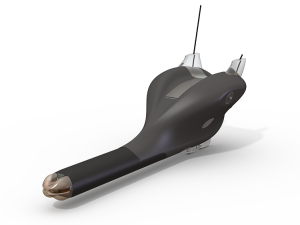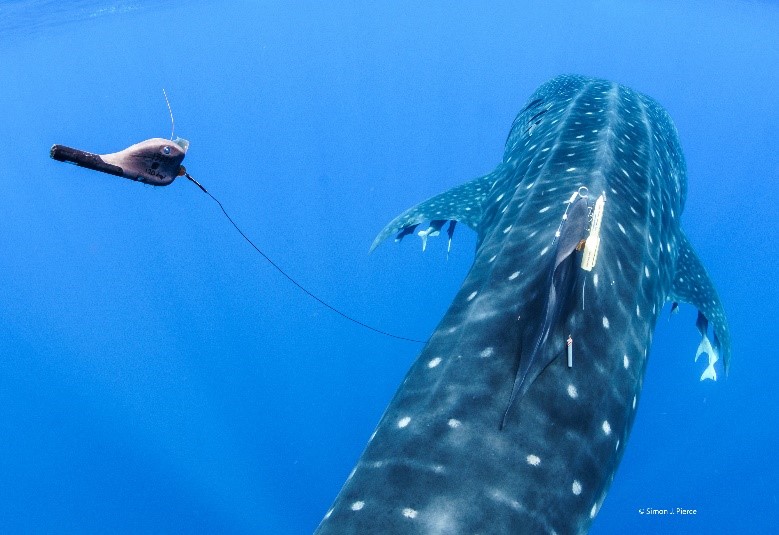
Features
- Argos
- Depth
- Temperature
- Light Level


WEIGHT
185 g
LIFE
260 days
DIMENSIONS (mm)
225 x 71 x 76
Key Benefits
The SPLASH10-323 is a data-archiving, Argos satellite transmitting tag designed for tracking vertical and horizontal movements of free-range marine animals like turtles and whale sharks. The SPLASH10-323 tag is a towed tag. A towed tag is attached with a tether and anchor and is towed behind the animal.
Data Products:
Depth
Argos
Light Level
Temperature
Key Features Available in the SPLASH10-323
- Highly Customizable Data Collection and Transmitting Schedule—researchers have the power to customize and prioritize data transmission to capture the information that is most significant for the project. Deployments can be tailored to achieve unique experimental objectives. Flexible transmissions provide the ability to extend the life of the tag by focusing on specific seasons or times of the year.
- Full Data Archive Available on Recovery—SPLASH10 tags contain one GB of onboard memory for archiving data. This means when you recover your tag, your full data set is available, even if the battery is dead—data are maintained in the archive for up to 25 years.
- The Portal Advantage—SPLASH10 tags are supported by the Wildlife Computers Data Portal, a collection of data management tools and services. Developed specifically for the display and investigation of data from Wildlife Computers tags, the data portal streamlines the processes of acquiring, preserving, and sharing data services. The portal helps collect, prepare, and analyze the data returned from the tag—via Argos or the archive. Data are easily sorted, filtered, searched, uploaded, and shared. You can see a Google Earth display of your deployment track, color-coded to show the relative age of each location. You can also set up a live KMZ to get data into your own monitoring system.
Whale Shark Tagging
With Dr. Jesse Cochran
The whale shark is not only beautiful, it is enormous. Recent research has unveiled #whaleshark “hotspots” in the Red Sea that they return to annually, including a large number of young whale sharks. But those are much farther south. Now, Dr. Jesse Cochran, a leading whale shark researcher, is aboard the OceanXplorer in the northern Red Sea. His mission is to find and tag a whale shark in a region where we know almost nothing about them. What will happen is a first for us, and for him.
OceanX

